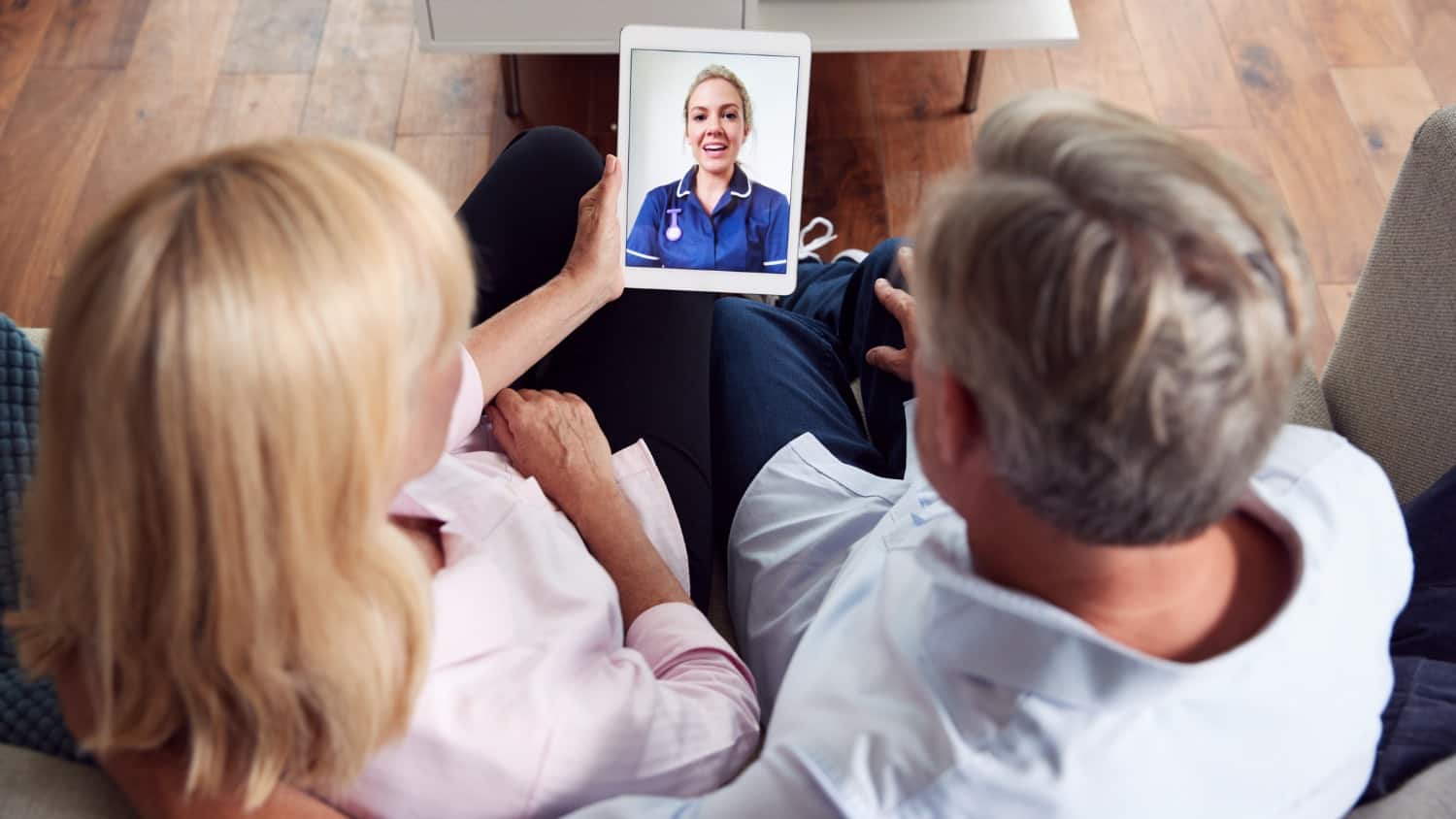
Using Telehealth Services to Receive Care During COVID-19 Safely
Now more than ever, because of the unprecedented public health emergency caused by the Covid-19 disease, the health, safety, and welfare of those of us who have severe chronic medical conditions, like heart, lung, or kidney disease, is on the line.
In order to receive care during the pandemic safely, telehealth services have been brought to the forefront. Based on telemedicine’s growth and pervasiveness, Medicare beneficiaries have easier access to telehealth services, including office visits, psychotherapy, and consultations using real-time audio and video.
Expanded Medicare Coverage for Telehealth Services
Most people with Medicare end up being higher risk for more serious Covid-19 illnesses. To keep you as safe as possible and progressively respond to the current public health emergency, Medicare has expanded its coverage of telehealth services.
This unprecedented action was taken to encourage Medicare beneficiaries to stay home to reduce their risk of exposure to Covid-19. Medicare will temporarily pay clinicians to provide telemedicine services for beneficiaries residing in all 50 states and DC.
Telehealth, also known as telemedicine, like other virtual services, uses digital information and communication technologies. From computers, tablets, smartphones, and other mobile devices, telehealth gives you the opportunity to access healthcare services remotely and manage your healthcare without delay.
The technologies can be used from the comfort of your home. Your doctor uses technologies on his or her end to improve or support the healthcare services they provide to you. For example, doctors can use mobile health apps and wearable monitoring devices to track your vitals and give alerts on needed care.
Some services that have been expanded by Medicare for telehealth include:
- Availability of a broader range of communication tools (including smartphones).
- Ability to interact with a range of providers, including doctors, nurse practitioners, clinical psychologists, licensed clinical social workers, physical therapists, occupational therapists, and speech-language pathologists.
What’s Covered with Medicare’s Expanded Telehealth Services?
Medicare beneficiaries can receive a specific set of services through telehealth, including evaluation and management visits (common office visits), mental health counseling, and preventive health screenings without a copayment if you have Original Medicare.
All of these expansions will help ensure you’re able to visit your doctor from your home so that you won’t have to leave your house to go to a doctor’s office or hospital. Leaving your house for these types of activities puts you and others at risk of exposure to Covid-19.
Here’s some additional information to keep in mind when using telehealth services during the pandemic:
Virtual Check-Ins
Medicare Part B pays for “virtual check-ins.” These include brief, virtual services with your physician or certain practitioners where the communication isn’t related to a medical visit within the previous seven days and doesn’t lead to a medical visit within the next 24 hours (or soonest appointment available).
Telehealth and Medicare Advantage
Medicare Advantage plans may also reimburse you for telehealth services. Check with your provider directly for their telehealth guidelines.
Consent
Before using telehealth services, you’re required to consent verbally to using virtual check-ins. Also, your doctor is required to document that consent in your medical record before you use this service. You pay your usual Medicare coinsurance and deductible for these telehealth services.
Online Patient Portals
Online patient portals are covered by Medicare. These portals allow you to communicate with your doctors without going to the doctor’s office. Similar to virtual check-ins, you’re required to initiate these individual communications.
Audio-Only Allowed
If you don’t have access to interactive audio-video technology needed for Medicare telehealth services or choose not to use it even if offered by your practitioner, Medicare allows you to use an audio-only phone for these services.
Full Visits Available
For full visits with your doctor, communication technology is allowed to be used. Also, you can get these visits at rural health clinics and federally qualified health clinics. Medicare pays for many medical visits through this telehealth benefit.
Take Advantage of Medicare’s Telehealth Services
The Centers for Medicare and Medicaid Services (CMS) has taken unprecedented action to expand telehealth during this pandemic. It’s highly recommended that you use your Medicare-covered telehealth services for routine healthcare situations such as wellness visits, medication consultation, dermatology (skincare), eye exams, nutrition counseling, and mental health counseling.
Telehealth can ultimately serve as a lifeline by increasing social distancing while avoiding additional negative consequences from delayed preventive, chronic, or routine care. What’s best, you’ll receive the same quality of care through telehealth services as you’d get during an in-person visit.
Have you tried the telehealth services offered by Medicare? What is your experience thus far? Do you think there’s room for improvement? What are some of the advantages of telemedicine, and do you think this service should still be available post-Covid?
Tags Coronavirus Medicare






